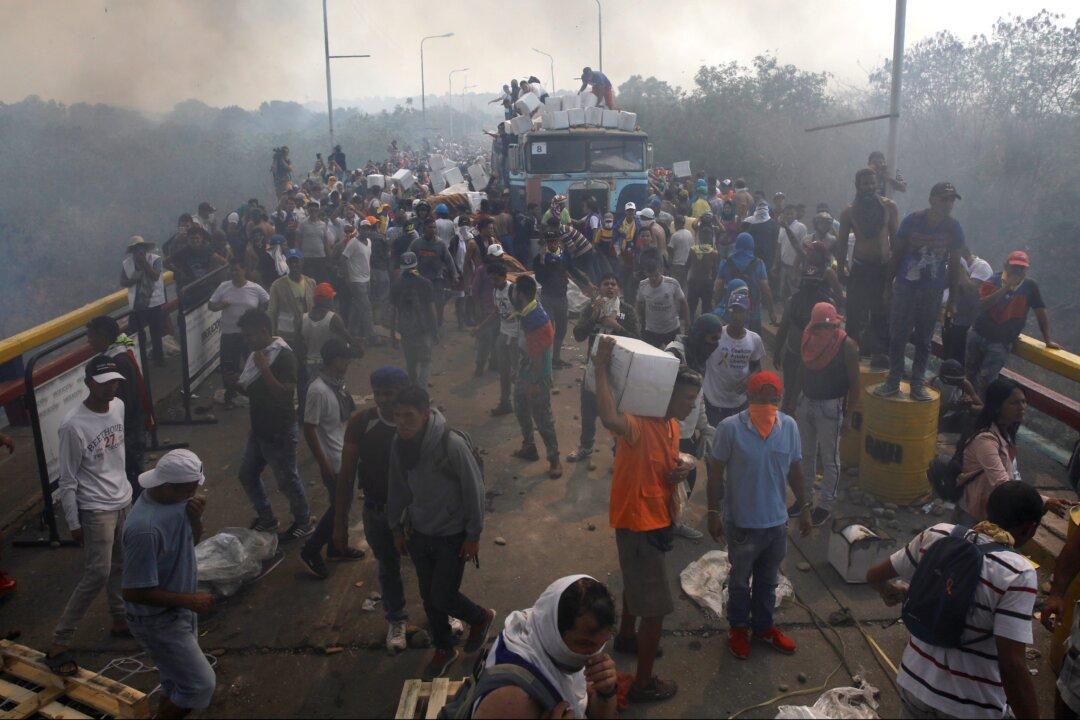CUCUTA, Colombia/URENA, Venezuela—At least two people were killed and trucks loaded with foreign aid were set ablaze after Venezuelan President Nicolas Maduro deployed troops and armored vehicles to turn back humanitarian assistance at border crossings with Colombia and Brazil.
Maduro said he was breaking diplomatic relations with Colombia and ordered its diplomatic staff to leave Venezuela within 24 hours because of its government’s assistance to opposition leader Juan Guaidó.





